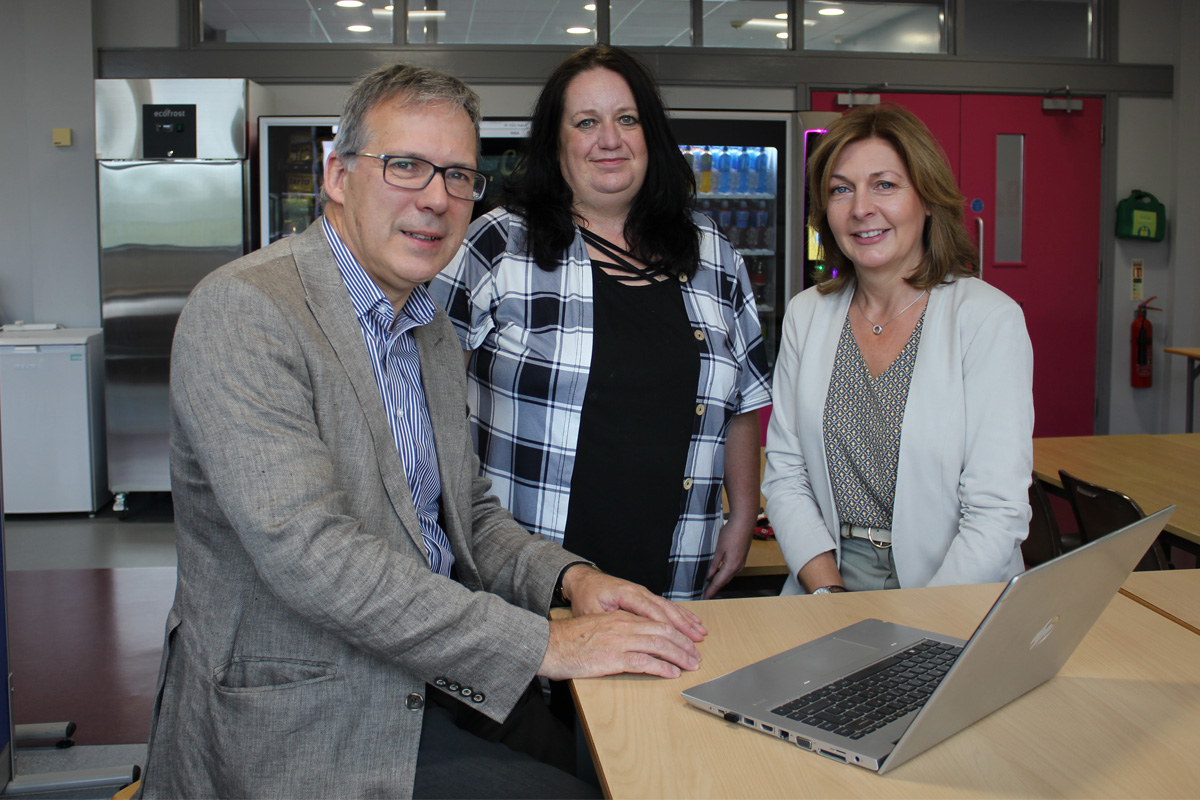New agricultural horizons in the context of STEM

In this, the final of three articles to celebrate British Science Week, Cerian Ayres illustrates change and opportunities in technical STEM education through innovations in Agricultural Technologies (Agritech).
In October last year I wrote ‘World class by nature: Further Education and climate change action’ for FE News, to recognise Global Climate Week 2022. In it, I considered some of the technological developments that are changing the agricultural sector: big data, robotics, and predictive analytics helping us to optimise agricultural output.
It might surprise our learners, but agriculture has been at the forefront of scientific and sociological change for millennia:
“Out of agriculture, cities and civilizations grew, and because crops and animals could now be farmed to meet demand, the global population rocketed—from some five million people 10,000 years ago, to more than seven billion today.”
Science has enabled the planet to sustain a human population far beyond its natural resources: the Haber-Bosch process that produces synthetic fertilizers is thought to sustain about half of the global population. Half of us wouldn’t be here without the benefits of that industrial process: it’s both frightening and exciting to consider the impact of agricultural technologies and the science behind them.
So, what’s on the agricultural horizon, and what does this mean for the agricultural sector, and for us in further education, training and skills?
Drones and big data
The integration of sensor and measurement technologies, drone and space technologies and big data analytics is transforming the way that we farm. In this video from the Education and Training Foundation, Donna Lindsay from Ordnance Survey talks about the development of sensor technology that can provide ‘hyper-local’ information to farmers to support precision-farming, and make an immediate impact:
“Precision farming offers a good solution to [the challenges of food production] allowing us to use chemicals applicators, sprays and fertiliser applications and instead of ‘blanket spray’ we can then actually target plants, utilising resource a lot better.” Ian Clarke, Assistant Principal, Reaseheath College.
Autonomous vehicles in farming are also being used to tackle labour shortages, reduce the labour-intensity of the sector, increase yields and decrease environmental impact [Ref 5].
These new technologies in farming present both challenges and opportunities to the agricultural sector, and to us as educators in further education and skills. The challenges are to:
- upskill today’s agricultural workforce with the technological, data and digital skills they’ll need
- prepare the future agricultural workforce and ensure that they’re prepared for continuing professional development throughout their careers.
If we meet the challenge – like Fritz Haber met it in in developing the Haber-Bosch process – the rewards will be immense. In the video above, Stephen Mariadas, Director of the South West Institute of Technology suggest that “employers, students and teachers that understand how to use big data are going to change the way we live”.
There are immediate opportunities too: these new technologies and the interest that they can excite in learners give us the potential to:
- attract new learners into agriculture – a workforce in need of diversity;
- encourage learners and professionals in agriculture to think more broadly about their skillset, and its transferability; and
- to encourage the disruptive, integrative and interdisciplinary thinking, and environmental stewardship that the Brooking Institute have identified as ‘transformative capacities’ for a green transformation.
New technologies mean new ways to access, and inspire, our STEM talent pipeline towards fulfilling careers in agriculture, agricultural technologies and the disciplines that support the sector.
Biosecurity and food supply
Two of those ‘interdisciplinary’ areas are biosecurity and food supply. Food supply, in particular, has been headline news over the last year due to the Ukraine war, unseasonable weather in southern Europe and the labour and trade impact of the UK’s exit from the European Union. Rationing has, again, been introduced by UK supermarkets – this time outside of the pandemic – and the National Farmers Union have warned of worse to come unless we change the way that we support the sector and improve the independence of our food supply.
For decades, we haven’t been this aware of where our food comes from. Technology might impact here too: our smartphones might, in future, tell us everything about the provenance of our food to:
- support sustainability by improving consumer choice and reducing waste;
- improving food security and safety through the transparency of the supply chain; and
- improve food labelling with a positive impact on human nutrition and health [watch this video from the World Economic Forum for more information].
Initiatives such as the UK Food Valley – initiative by the Greater Lincolnshire Local Enterprise Partnership and including Lincoln College – aim to:
- “Accelerate food chain automation and digital technology adoption to deliver productivity growth and high value jobs;
- Deliver low carbon food chains from farm to fork by focusing on low carbon technologies for production, processing and distribution;
- Develop the market potential of naturally good for you foods and new sources of protein, such as fish, vegetables, salads, fruit, pulses and lean meat, in which Greater Lincolnshire specialises [Ref 7]”
They’re an excellent demonstration of how further education – in partnership with employers and with a focus on local and regional skills development – can make a genuine contribution to some of the fundamental challenges of our time.
These new agricultural horizons, like the green and inclusive horizons that we’ve explored across this series of articles, will only be visible – and realised – with the support of a strong further education, training and skills sector and through the dedication of educational professionals.
British Science Week, whether you’re a scientist or not, is a great time to consider these horizons, what they mean to you, and the role that you and your colleagues have in’ raising learners up’ to ensure that they can see and aspire to fulfilling futures in sustainable, green jobs.

Further information
If you’re interested in learning more about the topics in this article, watch these videos from the Education and Training Foundation’s ‘T Level Professional Development’ courses in Agriculture and land Management:
Biosecurity for Agriculture, Land Management and Production
Change and innovation in Agriculture, Land Management and Production
Education for Sustainable Development in Agriculture, Environment and Animal Care











Responses